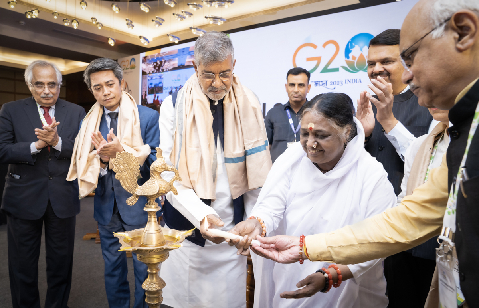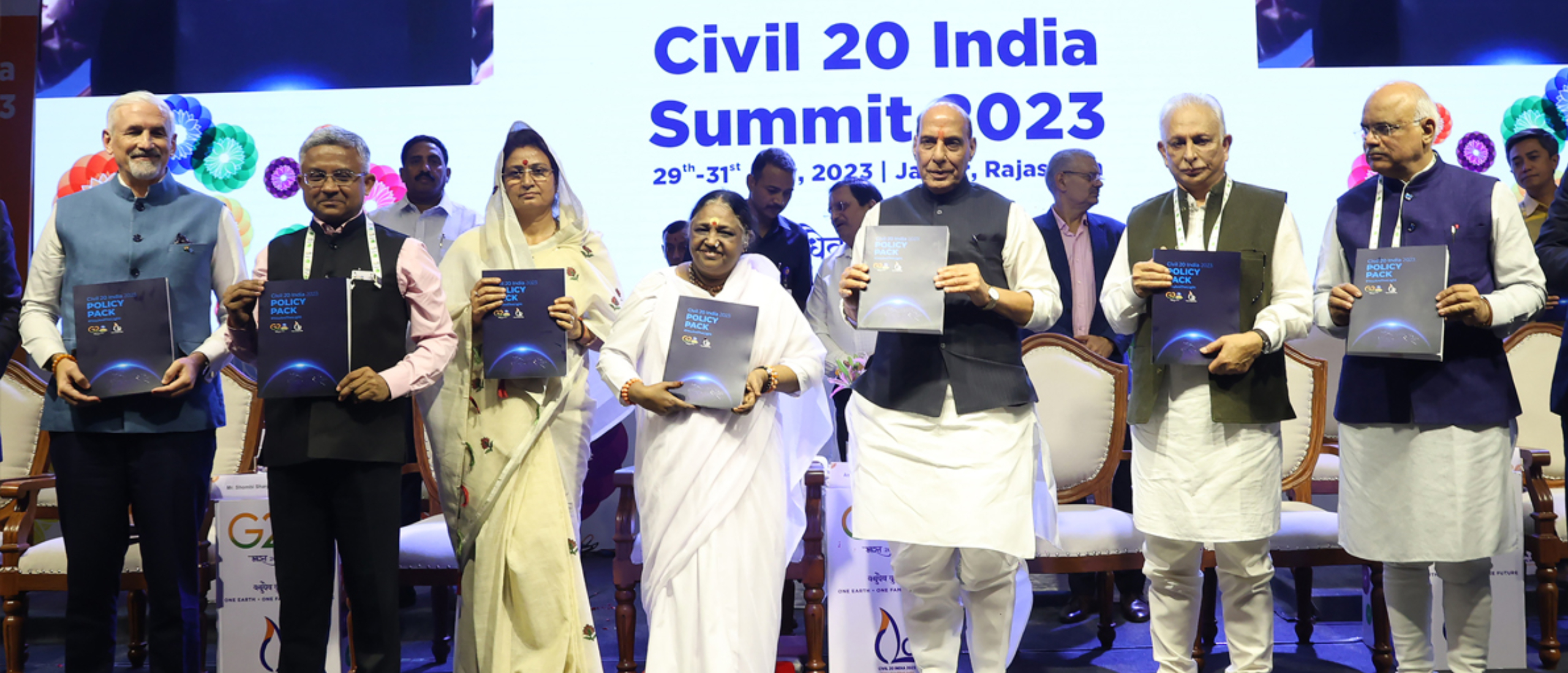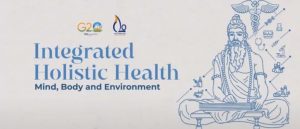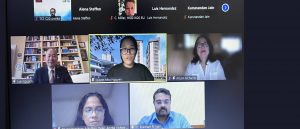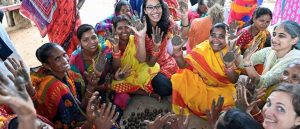With Amma as the first spiritual leader to chair C20, the 2023 initiatives included more than 6,000 civil society organisations from 154 countries.
The Civil 20 Policy Pack is the result of an unprecedented number of C20 events—over 1,300 meetings with more than 6,000 civil society organisations (CSOs) from 154 countries. Via in-person and online access, it was the first time such emphasis was placed upon global participation and the inclusion of CSOs in remote areas. C20 India also connected with more than 4.5 million people worldwide through mass outreach campaigns to address health, environment, and community empowerment.
Overall, C20 held 12,040+ events with gatherings in almost every state across India, as well as in Australia, Canada, France, Germany, Greece, Israel, Kenya, Korea, Portugal, Spain, Switzerland, and the United States. Together, they were able to create awareness about the need to embrace a more compassionate approach in all areas of life and effortlessly incorporate the aspect of compassion into all activities. This included:
- 584 policy discussions
- 347 chaupals (consultation meetings with local CSOs)
- 341 samajshalas (collective activities with partner organisations such as cleanliness drives or debate)
- 12 ambassador programs (youth activities in their campuses and localities)
- 91 additional events (such as inaugural events, webinars, and side events)
- 10,670 mass outreach events (Jan Bhagidari)
Amma is the first spiritual leader to be appointed as Chair of C20, a G20 Engagement Group that represents the world’s CSOs and non-governmental organisations (NGOs). It is their work that undertakes on a first-person basis the needs of the world’s most vulnerable communities and the impact of environmental destruction. Amma’s leadership provided many unique and valuable contributions, including a basis rooted in compassion and spiritual values which guided the entire C20 journey.
The G20 Secretariat is now reviewing the policies in advance of the G20 Summit where its Heads of State will meet in New Delhi in September. India is this year’s host country to the G20 (Group of Twenty), which comprises 19 countries and the European Union. Its members represent around 85% of the global GDP, over 75% of global trade, and about two-thirds of the world population.
“The Civil 20 forum has enabled us to communicate openly with the representatives of the G20 nations. During the last seven months, hundreds of summits, conferences, and one-day seminars were organised in almost all states of India, as well as in other G20 nations, on the challenges confronting nature and humankind. We were able to share our thoughts and opinions, and to suggest some practical solutions,” said Amma in her address at the C20 Summit in Jaipur, Rajasthan.
The COVID-19 pandemic has intensified deep inequalities furthered by a global economic recession and increasing natural disasters. C20 India specifically calls upon the world leaders to put aside their own self-interests and power struggles and shift their focus to cooperation and collaboration to build a better, stronger, and more inclusive world based upon empathy, mutual respect, and sustainability.
Amma guided members of C20 to focus on compassion and enthusiasm and be responsive to the needs of the people, especially at the grassroots level. She emphasised that everyone deserves respect and dignity regardless of background, setting the stage for ethical and sustainable policies. This provides a collective understanding of how humanity should progress toward global cooperation and sustainability.
“Science and technology have significantly progressed. However, the ethical behaviour of humanity has declined. Humans have learned to fly like birds and swim like fish, but have forgotten to walk and live like human beings. This is where spirituality becomes relevant,” said Amma.
“The Sun doesn’t require a candle to light its path. Gold exists within gold ornaments, and gold ornaments exist within the gold. Whether it is the entire engine at fault or a small but crucial screw, an aeroplane will be unable to fly. One of the basic tenets is īśāvāsyam idaṁ sarvam—this entire universe is pervaded by God. Seeing everything as God, love and serve everything.”
C20 India included the concept of sharing udaaharan—the Sanksrit word for best practices. This unique feature invited CSOs to submit examples of successful work as examples of how to address issues creatively. It was the first time C20 undertook such an initiative and emphasises the inclusivity and participatory nature of India’s C20. It also provided practical grounding for values-based policy recommendations. Overall, around 500 udaaharans and 60 white papers have been gathered, published and made freely available.
Also in the spirit of this vision, C20 India initiated the Worldwide Grassroots Survey to understand the main issues confronting people. The survey was completed by 427 social workers across 43 countries and overall, received 8,229 responses from people in 64 countries.
The C20 India’s resulting Policy Pack is founded upon G20 India’s theme—One Earth, One Family, One Future. The motto is inspired by an ancient Sanskrit phrase, vasudhaiva kutumbakam, which is so valued that it is engraved in the entry to India’s parliament building. It means the whole world is one family.
One Earth: C20 highlights the need for united action on critical global issues, particularly climate change, and calls upon the G20 leaders to work together on urgent global problems. This includes a focus on individual and collective social justice, ecological crisis mitigation, and sustainable development, all while dealing with various other global challenges such as economic slowdown, debt distress, food and energy insecurity, and geopolitical tensions.
One Family: C20 calls for the creation of an inclusive and compassionate global community. This involves empowering marginalised groups, preserving native cultures, respecting cultural relativity in public policy, and encouraging resource sharing and multilateral cooperation for equitable development. C20 also emphasises the importance of upholding human rights and recognising the dignity and worth of the human person.
One Future: C20 stresses a focus on education, reversing structural inequalities, and reinvigorating faith in multilateralism and science. It advocates for climate financing aimed at vulnerable populations and an integrated approach to health, including mental health. Additionally, the policy recommendations highlight the potential of digital transformation but warn of the dangers when used improperly. Lastly, it underscores the need for a human-centred approach, focusing on gender equality, promoting values-based education, and establishing just world finance systems.
Traditionally, the Indian approach to public service has been founded upon selfless service and community participation. It has relied in part on non-state initiatives, from Temples and Shrines to Dharamshalas and educational institutions, to resolve many important issues through public participation.
This is possible because there is a collective faith in self-reliance and sustainability, where economic growth, ecological health, personal enlightenment, and social well-being go hand-in-hand. In India, civil society has been historically strong and is self-supporting in nearly every aspect. It means C20 India’s efforts have been cross-cutting; both broad and deep, multi-disciplinary, and approaching common issues with more diverse potential solutions and collaboration.
The C20 India tagline “You Are the Light” indicates the importance of every individual and their place in the world. A healthy, sustainable, and harmonious society requires that all citizens have equal opportunities for success and prosperity, as well as supportive structures to assist those who have fallen into difficult times or who were born into situations of poverty or poor health.
It inspires personal responsibility and self-confidence that we can indeed make a difference. “You Are The Light” emphasises the responsibility of each individual to contribute to the well-being of society overall and shifts the dialogue toward a place of ownership. It indicates to governments that civil society is required to accomplish any and all efforts and goals.
As proof of this concept came the gathering and sharing of information on a public basis free of charge. The inclusiveness of C20 India allowed for the compilation of a vast amount of data and on-the-ground experiences to analyse and share with all concerned stakeholders.
It exemplifies that the efforts of the C20 Working Groups are for the benefit of society and the world, and that can only be achieved by working collectively and openly sharing with one another. Many of the Working Groups also published general and thematic books and reports gathering their findings over the past months, also available free of charge.


